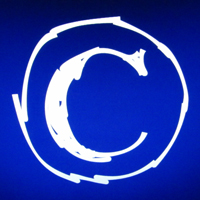- photo contests ▼
- photoshop contests ▼
- Tutorials ▼
- Social ▼Contact options
- Stats ▼Results and stats
- More ▼
- Help ▼Help and rules
- Login
Similar Paintshop-Pro Tutorials:
Using the Magic of Masks - Paintshop-pro Tutorial

As Paint Shop Pro becomes more powerful so do its tools. This power comes with change, though. Certain tools, such as masks, must, necessarily, change their behavior.
Changes, such as these, can be a little disconcerting to users especially with tools as complex as masks.
In version 5.xx, masks have changed quite radically. Part of this change is due to the fact that PSP 5.xx users now have the capability of using layers (for more info on layers, see the tutorial "PSP 5-Layers Primer").
Masks in PSP 5 are now more like masks in the higher-end programs such as Adobe's Photoshop and Corel's PhotoPaint.
The basics are still similar in that a mask is grayscale and where the mask is white you won't see any change and where it's black you will see change.
The change you will see, though, comes not from applying effects to the image through the mask, but from what's on the underlying layer(s).
submitted: 5 years and 3899 days ago
Using the Magic of Masks (ver 4.12) - Paintshop-pro Tutorial

Masks are one of the most powerful tools a digital artist using PSP has at their disposal. New with version 4, and above, comes the ability to save your masks. This can greatly simplify the process of creating certain types of graphics such as buttons for your web pages. A mask enables you to create beveled edges on textured surfaces giving the illusion of 3-dimensionality. Masks can help you achieve other effects, as well, such as disappearing text and much more.
Along with some of the advancements made in masking with ver 4, and above, came just enough change to confuse users of earlier versions. The following tutorial will help users of previous versions as well as introduce new users to the "Magic of Masks".
As well as demonstrating how masks work this tutorial will give you a quick idea of how to use the built in textures to create your own, well... textures.
submitted: 5 years and 3899 days ago








